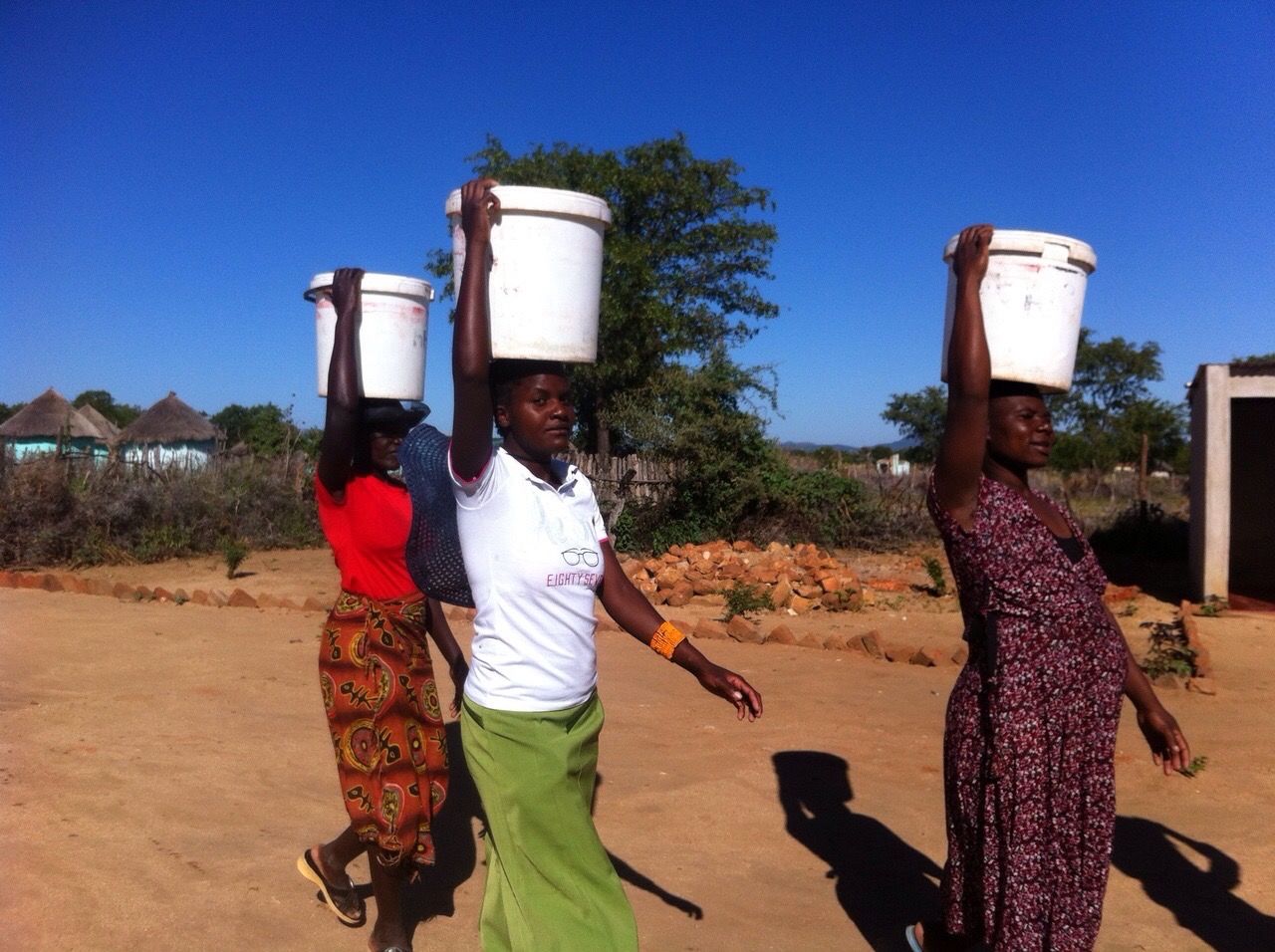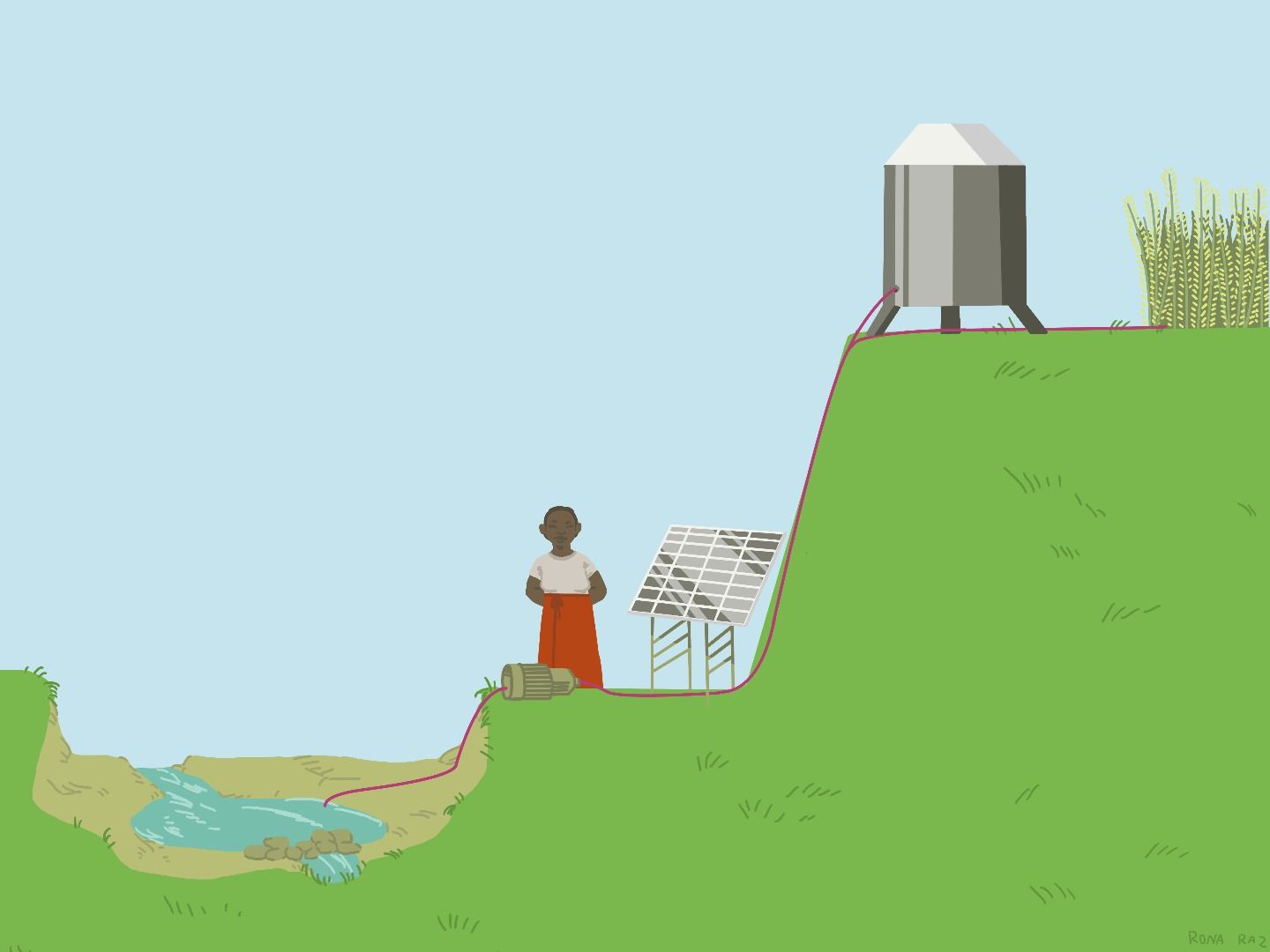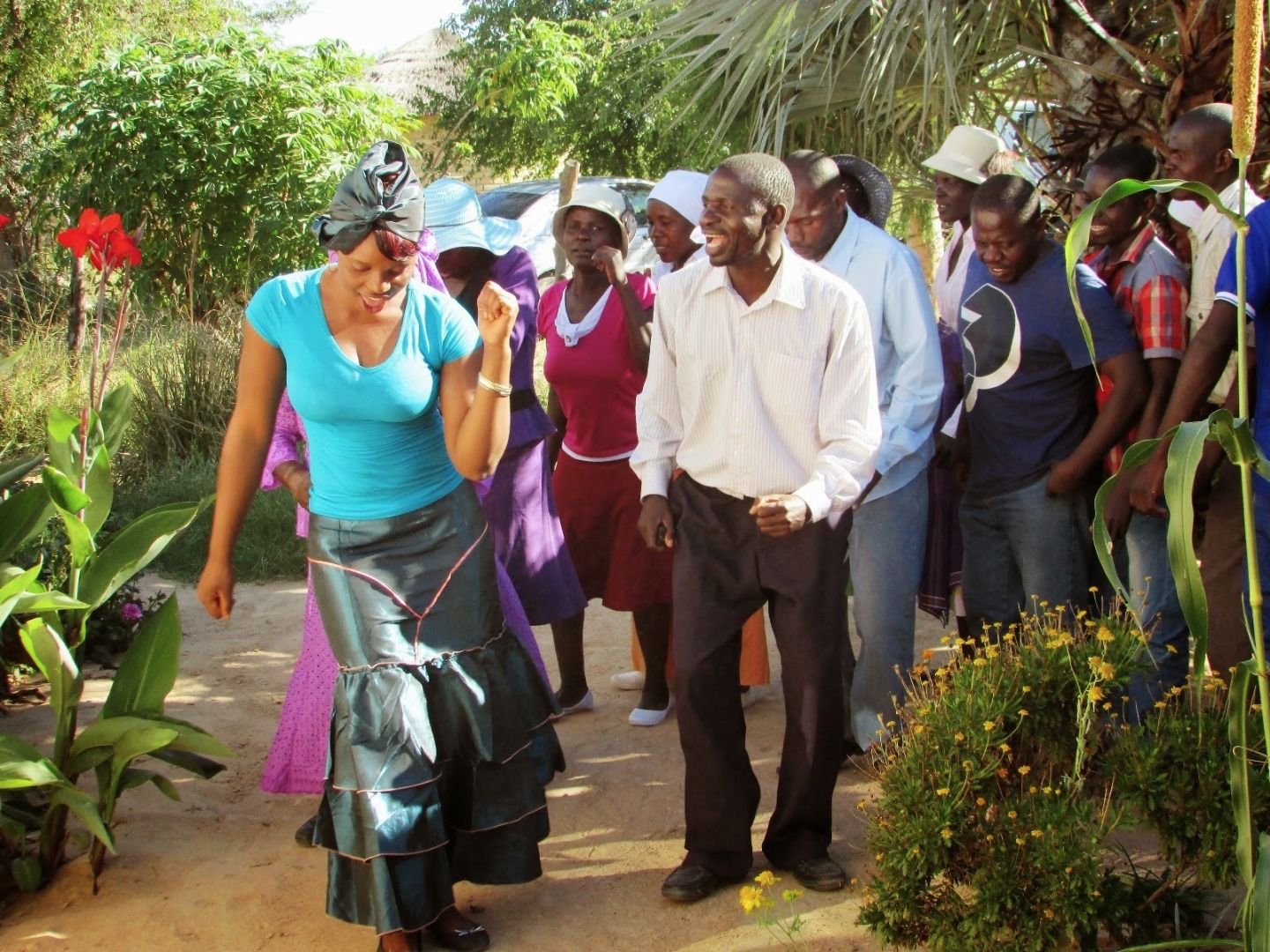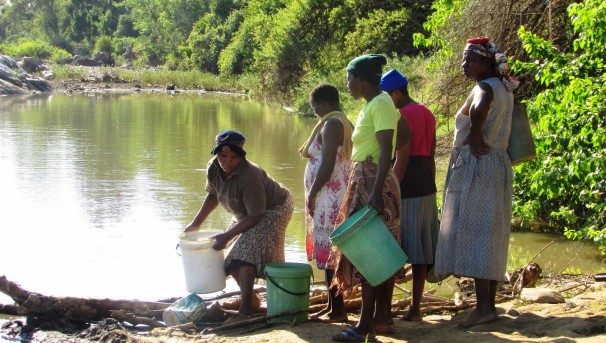Pump It Up
This project has ended, but you can still support amazing Berkeley initiatives by visiting give.berkeley.edu. Your continued support of our students, faculty and staff will ensure that Berkeley remains the #1 public university. Go Bears!
WHAT WE WANT TO FIX
Having food on our table is not something we need to worry about, but this isn’t always the case for many parts of the world.
In rural Zimbabwe, people rely on the food they grow. Communities live without running water or electricity. During the rainy season, staple food is grown in the fields - corn, wheat, and potatoes. But fresh vegetables are needed year-round to meet dietary needs. Traditionally, women are in charge of growing vegetables in communal gardens. The women grow tomatoes, spinach, carrots, onions, and other vegetables, which are a source of livelihood for their family. When harvest is good, they are able to sell the surplus, adding a desired income for their families. Gardens are located near rivers, which are used as a source for irrigation.
When the dry season begins and the water level in the river falls, the women create small dams near the gardens. To irrigate, the women fill 5 gallon buckets, and carry it up a 30-feet steep slope to the river bank. Each woman makes this trek many times each week, and while their strength and optimism throughout this arduous task is seriously awe-inspiring, we know there are simple, effective solutions that will make this task much simpler.

THE SOLUTION
We want to introduce irrigation pumps to the women’s gardens. Water pumps are cheap, simple and efficient, making them an ideal method to bring water up from the river to the gardens. To operate, an irrigation pump will be connected to a power source and to a hose. In cases where the garden is more than 30 feet away from the river bank, a water container will also be installed. These irrigation systems are designed to be affordable (approximately $500), mobile (to be shared by several gardens), simple (easy to install), durable (low maintenance), strong (operate in difficult conditions such as steep elevation and silty water), and sustainable (solar-powered).
In this pilot, we want to be able to demonstrate the efficiency of this solution. Since we aren’t members of the community, there is only so much we can do from a technical standpoint from the other side of the world. Our plan is to purchase and install several different pumps, batteries and solar panels, and test their suitability to the technical as well as the cultural needs.
WATER AVAILABILITY AND CLIMATE CHANGE
This year, because of the strong El Nino, Zimbabwe did not receive much rain, and there is barely any flowing water in the river. In such conditions, the women dig pits in the sandy river bed and put small concrete rings into the pits. These structures fill up with water, just like it does when you dig a hole at the beach. The women then take small cups and fill each bucket from water that accumulates in the pit. In such a situation, our small pumps can be really helpful - they can be submersed into these small pits and pump up the water in seconds.
In recent years, climate change has had an adverse affect on agriculture in Zimbabwe, and future forecasts are not optimistic. Crop yields suffer and the community often goes hungry. Small technical solutions such as the irrigation pump systems have good chances of maintaining livelihood on the farms. In drought conditions, even a few irrigation cycles per season, created by the pumps ability to access the smallest amounts of water, allows the garden and the community to continue to grow.
OUTREACH AND IMPACT
Donations will go directly towards equipment costs and travel, but the indirect effects of donations will stretch much farther. Focusing on women’s gardens allows us to empower women, and highlight their talents, skills, and energies. Installing and testing the irrigation systems will be a collaborative process. Once the most appropriate system will be selected, the women will be able to train the community on how to use them. When possible, system components will be purchased locally. This will allow to replicate the system in other community gardens.
We will also teach useful methods to help gardeners improve water use efficiency, and preparedness to climate change. The women we teach will then be able to sell their skills and knowledge. The irrigation pumps will not only increase the economical input from the gardens, but possibly create a new position as irrigation experts. By empowering women, the quality of life for the whole communities will be improved. Please make a gift today to help us make this project a reality. Your support will make such a difference in the lives of these women and their surrounding communities.

NEXT STEPS
This year, if we pass our funding goal, we will also purchase drip irrigation systems for the community gardens.
Next year, we will use our insights from this pilot project to design the optimal irrigation system and make it scalable across other women’s community gardens in other parts of Africa.
OUR STORY
Naama
As an Environmental Scientist, I always search for new paths that widen my experience. I strive to draw as many connections as possible between pure academics, practical experience, and people’s lives. Last year I traveled to Zimbabwe as a volunteer consultant with a small NGO, the Mounde Trust (http://www.muonde.org/), to work on water harvesting projects. Because I’m a backyard gardener, I asked my host to take me to visit a place I heard about - the women's’ garden. I was stricken by the beauty of the place, the communal support and shared work. But I was simply amazed by all the hard work of carrying water buckets, when there are such simple solutions! I promised to come back with pumps, and I will! For me, gardening is a hobby; for the women of Zimbabwe it means survival.
Karina
I first heard about Naama and this project through my hydrology professor at UC Berkeley. As an aspiring environmental engineer, and as someone who cares deeply about water issues, I realized that Pump it Up was a project that I absolutely wanted to be a part of. I believe that water, as a fundamental human need, is a fundamental human right, so improving access to water around the world is incredibly important to me. This project does exactly that for a community that needs it.
PROJECT BUDGET

To learn more and contact us, please email us at rynaama@gmail.com and karina.yap622@gmail.com.
$10
You carried this bucket
Thanks a bunch! It’s not easy to carry a bucket-full of water on your head up the river bank. You’re getting a shoutout on our Wall of Awesome People on our webpage. Even better - why don’t you share with the world what brought you to do this good deed? Send us your motto for the day, and we will post it next to your name.
$25
You watered a row of plants
You are so sweet! One lucky lady can forget about this task for today. In addition to the above perk, we're sending you lots of love and gratitude with a digital photo of the amazing scenery and people of rural Zimbabwe.
$50
You watered the whole garden
Thanks for your support! You get the above perks, and a download link to a video tour of the garden curated by the women of Mazvihwa. This is going to be fun! Be prepared to experience singing, dancing and giggling.
$100
You gave food to our community
That is awesome. With your help, the children, men and women of the village can rely on having fresh vegetables this season, which are critical for their nutritional needs. In addition to all the above perks, we will send you a downloadable link to a tutorial video where the women will teach you how to cook Sadza with fresh tomato and squash sauce on an open fire. Don’t worry, they will explain to you what Sadza is. Yes, you will like it.
$500
You got us a water pump
Thank you so much! With this donation, we can purchase an irrigation pump that will be installed in the river near one of the women’s community gardens. No more bucket-carrying! You get the above perks plus a handmade present from the women (we will choose and collect these during our trip).
$1,000
You got the village pumping
Not only a water pump, but also batteries, solar panel and a hose! The community garden will never be the same. We will also send you a framed photo, so you can always remember our community and your contribution. You get to choose one of the photos from our collection.
$1,500
You, yes you, are an angel
This is precious. Thank you for believing in our cause and supporting our mission. We want to meet you in person! In addition to all other perks, we invite you to a one-of-a-kind experience, where you get to visit an authentic, off the grid village, in Southern Zimbabwe. You will live in your private hut at a family homestead. You will wake up not to the sound of cars but to the serenity of life on the farm with no roads. Your host will take you to see what interests you: Bird watching? Learning about the ecology of Baobab trees? School and education? Maybe you would like to spend some time working with the women in the community garden? When night falls, you will discover why the Milky Way is called the Milky Way. This offer includes personal hosting for up to two people for a week. The offer does not include airfare and transportation to Mazvihwa (talk with us about how this can be done).




